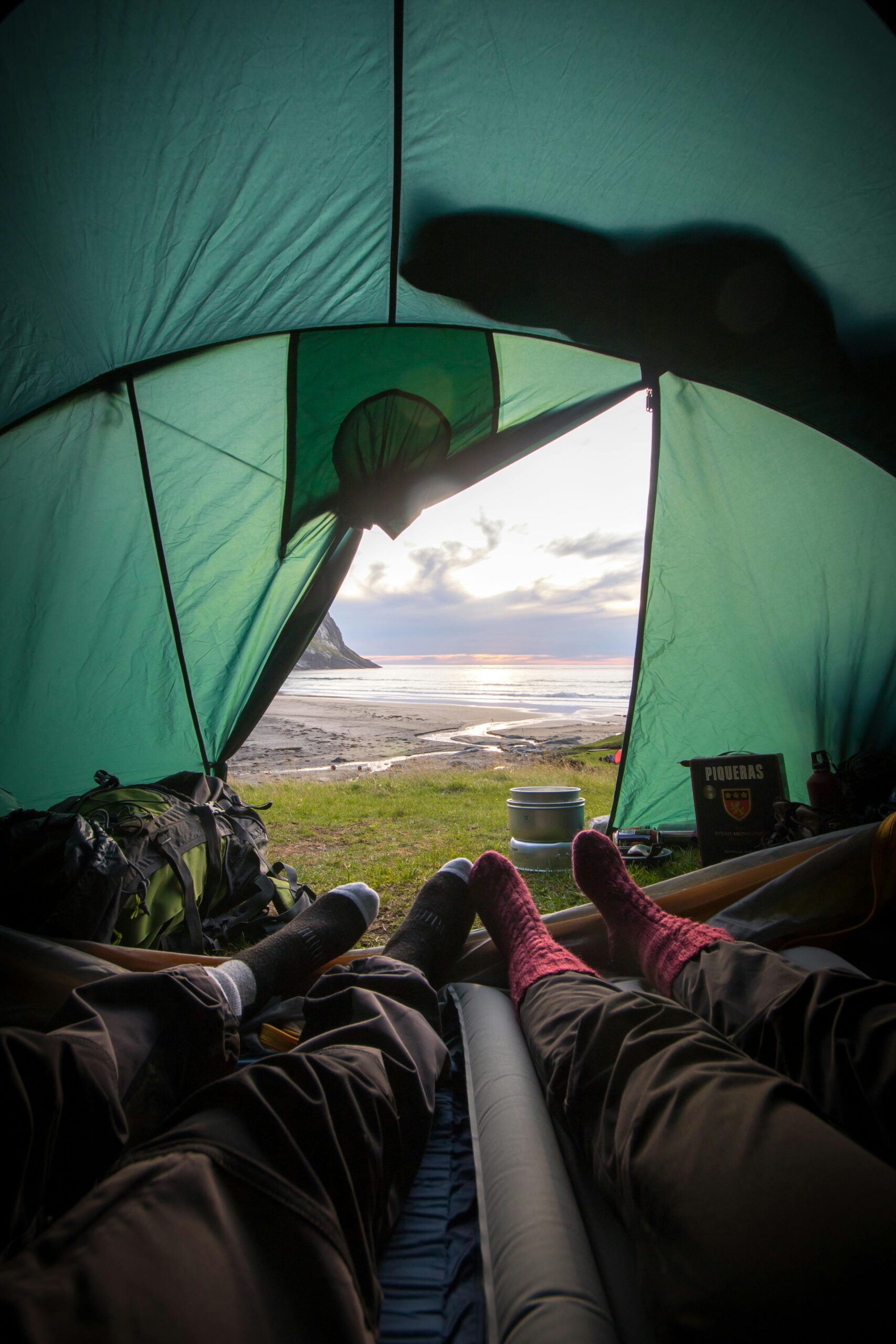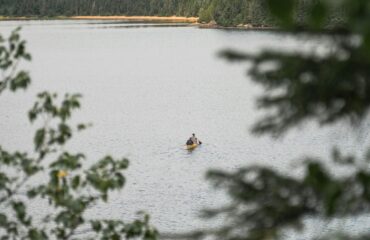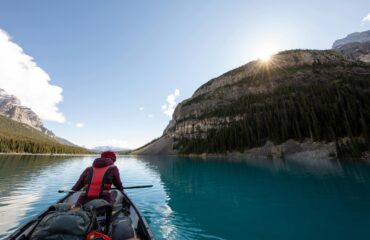Ultimate Guide to Memorable Camping Adventures
There’s something about a crackling campfire, a star-studded sky, and the scent of pine that beckons to the adventurer in all of us. Camping isn’t just a recreational activity; it’s a chance to reconnect with nature, build stronger bonds with loved ones, and create lifelong memories. Whether you’re a seasoned outdoor enthusiast, a family looking to unplug, or someone eager to hike into the wilderness with only the essentials on your back, this comprehensive guide is your roadmap to a successful camping trip.
The Gateway to the Great Outdoors
Rediscovering Nature’s Serenity
Think back to your fondest memories of being outdoors. Chances are, your mind wanders to a time when you were camping. The tranquility of a forest, the grandeur of mountain vistas, and the simple pleasures of a clear stream are just a few of nature’s gifts that await you. Camping gives you the perfect pause from the hustle and bustle of daily life, allowing you to find peace, gratitude, and inspiration in the great outdoors.
Health and Well-being: Mental and Physical Benefits of Camping
The benefits of camping extend beyond the spiritual realm. Studies show that spending time outside can reduce stress, lower blood pressure, and improve your mood. Furthermore, the physical activities involved in camping, such as hiking or swimming, offer a workout that’s as good for your heart as it is for your soul.
Essential Camping Gear
Packing for a camping trip is all about balance. You want to be prepared for any eventuality, without lugging around extra weight that will only slow you down. From shelter to sustenance, here are the must-have items that should find their way into your pack or vehicle.
Shelter and Comfort: The Right Tent and Sleeping Gear
Your tent is your home away from home, so invest in one that’s durable, weather-resistant, and suits the size of your group. Similarly, your sleeping bag and mattress should be chosen with the season and terrain in mind to ensure a good night’s sleep that will leave you energized for the day’s adventures.
Cooking Up a Storm: Camp Stoves and Meal Prep
Mealtime is the focal point of many camping memories. A reliable camp stove, lightweight utensils, and a sturdy cooler can make the difference between a soggy sandwich and a gourmet outdoor meal. Efficient planning and preparation will serve up delicious eats without the complexity of a home kitchen.
Choosing the Perfect Campsite
Selecting the right campsite can elevate your camping experience from good to great. Location, accessibility, and the immediate surroundings should all be in line with your camping goals, whether that’s tranquility, adventure, or family enjoyment.
Researching and Reserving Campgrounds
With the internet at our fingertips, researching potential sites is easier than ever. Look for online reviews, campground layouts, and availability to ensure you find the perfect spot. Remember, popular sites can fill up quickly, so booking in advance is often necessary.
Backcountry Camping
For those who seek solitude and raw nature, backcountry camping offers a more immersive experience. Check local regulations, ensure you have the proper permits, and always abide by the “Leave No Trace” principles to preserve the wilderness for others to enjoy.
Meal Planning and Campfire Cooking
The smell of food sizzling over an open flame epitomizes the camping experience. Delicious meals can be simple to prepare and are always more enjoyable when shared with friends and family.
Preparing a Menu and Food Safety
Before departing, plan your meals around simple recipes that use fresh, wholesome ingredients. Pack foods in a way that maintains their freshness and prevents spoilage, especially in warmer months. If your camping will take you off the grid, focus on non-perishable and lightweight meal options.
The Art of Campfire Cooking
Campfire cooking is as much an art as it is a science. Master a variety of techniques, such as foil packet meals, skewers, and Dutch oven roasting, to add creativity and flavor to your camp cuisine. Always adhere to safety guidelines and local fire regulations to prevent wildfires and protect the environment.
Family-Friendly Camping Tips
Camping with children can be both exhilarating and challenging. Here’s how to ensure your family’s camping experience is memorable for all the right reasons.
Keeping Kids Entertained
Kids thrive in the great outdoors, but a little extra planning can ensure that boredom doesn’t set in too quickly. Organize age-appropriate activities like nature scavenger hunts, star-gazing, or storytelling around the campfire to keep them engaged and excited about their outdoor adventure.
Safety First
Camping is all about fun, but safety should always be a priority, especially when children are involved. Teach your kids the do’s and don’ts of camping, from respecting wildlife to the proper way to approach a fire. Have a designated “safe zone” at the campsite where kids know they can play without getting into trouble.
Backpacking Basics for Outdoor Enthusiasts
For those who prefer a more rugged and mobile camping experience, backpacking is the ultimate test of resilience and self-sufficiency.
Packing Light and Smart
Every ounce counts when you’re carrying your gear on your back. Invest in high-quality, lightweight gear and multi-functional tools. Aim for a base pack weight (all gear except consumables) that is less than 20% of your body weight for a comfortable outing.
Trail Etiquette and Common Courtesy
Your fellow backpackers have come to the wilderness seeking similar solace and adventure. Follow established trail etiquette, such as yielding to uphill hikers and keeping noise to a minimum. Respect the environment by staying on marked trails and properly disposing of waste.
Camping Etiquette and Leave No Trace Principles
Respect for nature and wildlife is at the heart of a true camping ethos. The Leave No Trace principles provide a framework for responsible outdoor ethics that all campers should follow.
Principle 1: Plan Ahead and Prepare
Take the time to understand the area you’ll be camping in. Be aware of any regulations or camping restrictions, and ensure you have the right gear and knowledge for the environment.
Principle 2: Travel and Camp on Durable Surfaces
Minimize your impact on the landscape by sticking to established trails and camping areas. Use durable surfaces like rock, gravel, or sand to set up camp, and never camp within 200 feet of water sources.
Principle 3: Dispose of Waste Properly
Pack it in, pack it out. Properly dispose of all waste, including biodegradable items like food scraps. Use designated facilities when available, or follow strict guidelines for backcountry disposal.
Principle 4: Leave What You Find
Resist the urge to take a piece of nature home with you. Admire the beauty of the landscape, but leave rocks, plants, and artifacts as you found them for others to enjoy.
Principle 5: Minimize Campfire Impacts
One of the joys of camping is a cozy campfire, but it’s important to build and maintain fires responsibly. Use existing fire rings where possible, and keep your fire small and under control. Always completely extinguish fires before leaving your campsite.
Principle 6: Respect Wildlife
Observe wildlife from a distance and never feed them. Store all food and scented items securely to prevent encounters with animals. Be especially mindful when camping in bear or cougar territory, following specific safety protocols and guidelines.
Principle 7: Be Considerate of Other Visitors
Remember that you’re sharing the campground or trail with other visitors. Keep noise levels down, give fellow campers privacy, and respect their space.
Safety Measures and Emergency Preparedness
It’s essential to prepare for unforeseen circumstances when camping. A little planning can go a long way to keep you and your companions safe and sound.
First Aid Kit Essentials
A well-stocked first aid kit is a non-negotiable camping companion. Essential items include bandages, antiseptics, pain relievers, blister treatments, and any personal medications. Familiarize yourself with basic first aid procedures before heading out, and ensure your kit is accessible and up to date.
Navigation Tools
Losing your bearings in the backcountry can quickly turn into a dangerous situation. Always carry a map and compass, and know how to use them. Consider supplementing your navigation tools with a GPS device or app, but never rely solely on technology.
Weather Awareness
Weather can change rapidly, especially in mountainous or coastal environments. Stay informed about the forecast for your camping area and be prepared for any conditions. Have a plan in place for extreme weather events like thunderstorms or sudden temperature drops.
Emergency Protocols
Before setting out, ensure that someone not on the camping trip knows your itinerary and when you expect to return. In the event of an emergency, this person can alert authorities if you’re overdue. Carry a personal locator beacon or satellite messenger for additional peace of mind.
Conclusion: Climb Every Mountain, Ford Every Stream
This ultimate camping guide is just the beginning of your outdoor adventure. The memories you make, the connections you forge, and the wonder you find in the natural world will last a lifetime. Now, with the tools and knowledge at your disposal, it’s time to pack your backpack, lace up your hiking boots, and head out into the wild. Happy camping!
Ready to gear up for your next camping trip? Visit myoutdooradv.net today to find everything you need for a successful outdoor excursion.




